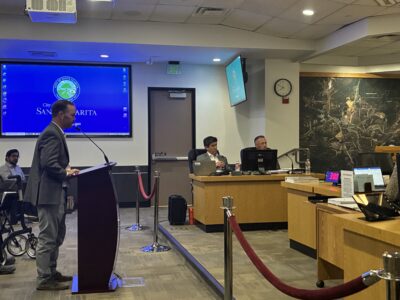By Jack Phillips
Contributing Writer
Some Social Security recipients could experience a payment garnishment as an agency clawback policy on previous overpayments doled out to seniors goes into effect later in July.
The Social Security Administration updated the overpayment garnishment rate in April to 50%, according to a message from the agency at the time. In some instances, the SSA pays recipients too much due to a miscalculation or if a recipient fails to update their earnings.
When the Clawbacks Start
By July 24, the overpayment wage garnishments will go into effect, according to an emergency message that was issued by the SSA in April.
“Any new Title II overpayment determinations will have the 50% benefit withholding automatically applied for overpayment notices sent beginning April 25, 2025,” the agency said in the message.
“If an overpaid individual has a prior overpayment and incurs a new overpayment, all outstanding overpayments will default to 50% benefit withholding at the end of the approximately 90-day period if the individual does not request reconsideration, a waiver, or negotiate a lower repayment rate.”
It means that the latest date that overpayment clawbacks can start is July 24, which is 90 days after April 25. Some seniors may have received wage garnishment notices before April 25, meaning the clawbacks started before the July 24 cutoff, according to the SSA message.
It’s not the first time that the agency has tried to reclaim overpayments.
According to an analysis from health policy research organization KFF that cited a Freedom of Information Act request, the SSA attempted to reclaim overpayments from approximately 2 million people in the fiscal year ending September 2023.
Seniors Have Options, Expert Says
The executive director with The Senior Citizens League, Shannon Benton, said on July 9 that the group believes overpayments “should be recouped” under the Social Security policy but is “concerned about the impact of any recovery rate on the less financially stable retirees.”
“For some retirees, it won’t matter if it’s 1% or 100%. Any amount of clawback could be catastrophic for the less financially stable retirees,” Benton said.
Retired Americans who are “affected by a clawback payment can request a lower repayment rate if they cannot afford the 50% deduction,” her statement said, adding that they “have the right to appeal the overpayment decision or the amount.”
“Additionally, retirees can apply for a waiver if repaying the overpayment would cause financial hardship. These options could provide relief and flexibility for individuals who struggle to manage their deductions,” Benton said.
People who believe they have the right to appeal their check recoupments or another decision made by the Social Security Administration can start the process on the agency’s portal, filling out a Request for Reconsideration form and either mailing or faxing the document to a nearby SSA office, or calling the SSA.
In some cases, people can request a hearing with an administrative law judge, request a review with the SSA’s Appeals Council, or file a federal district court action.
Repayment Options
To prevent the wage garnishment process, some seniors can pay the SSA through online bill pay, credit card, or check.
“If you got a letter in the mail that says you got more money than you should have, please pay us back within 30 days,” the SSA says on its website.
“Benefits are overpaid when we can’t accurately calculate your benefit amount because our information is wrong or incomplete. It can happen if you don’t share updates with us about what’s changed in your life, like your ability to work, living situation, marital status, or income.”
Payment Schedule
The payment schedule for most Social Security beneficiaries will follow the regular format. Those who started receiving benefits before May 1997 should have already had their checks or payments sent out on Thursday, July 3.
People whose birthdates are between the first and 10th of a month should have received their payment on Wednesday, July 10; whose born between the 11th and 20th of a month should get their benefits on Wednesday, July 16, and those born between the 21st and 31st should receive their payments on Wednesday, July 23.








